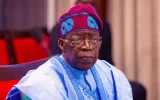by Kolapo Olapoju
Following the rampant attacks of the terrorist sect, Boko Haram and the fear of election violence, the United States government on Tuesday, February 3, warned its citizens in Nigeria to avoid travelling to the B
A statement issued by the Department of State urged its citizens in Nigeria to consider their own personal security and to keep personal safety in the forefront of their travel plans.
The US maintained that the ability of its mission to provide assistance to its citizens in Adamawa, Borno, and Yobe States remains severely limited.
“The US mission advises all US citizens to be particularly vigilant around government security facilities; churches, mosques, and other places of worship; locations where large crowds may gather, such as hotels, clubs, bars, restaurants, markets, shopping malls; and other areas frequented by expatriates and foreign travelers. Security measures in Nigeria remain heightened due to threats posed by extremist groups, and US citizens may encounter police and military checkpoints, additional security, and possible road blocks throughout the country.”
“The Department continues to recommend against all but essential travel to the following states due to the risk of kidnappings, robberies, and other armed attacks: Adamawa, Bauchi, Bayelsa, Borno, Delta, Gombe, Jigawa, Kaduna, Kano, Katsina, Kebbi, Niger, Plateau, Rivers, Sokoto, Yobe, and Zamfara.”
“The Department also warns against travel in the Gulf of Guinea because of the threat of piracy. Based on safety and security risk assessments, the Embassy maintains restrictions for travel by U.S. officials to those states listed above; officials must receive advance clearance by the U.S. Mission for any travel deemed as mission-essential. U.S. citizens should be aware that extremists could expand their operations beyond northern Nigeria to other areas of the country.”
“Nigeria’s general elections are scheduled for February 14, 2015, and gubernatorial elections are scheduled for February 28, 2015, in all states except Anambra, Bayelsa, Kogi, Edo, Ondo, Ekiti, and Osun. Nigeria last held national elections in April 2011. Although the elections themselves remained largely peaceful, violence temporarily erupted in many northern states after the announcement of results in the presidential race. The 2015 elections again present a possibility of violence, particularly in the northern and southeastern parts of the country. U.S. citizens are encouraged to exercise caution during the election process, particularly in and around polling locations in the weeks before and after the elections.”
“Boko Haram, an extremist group based in northeast Nigeria designated as a Foreign Terrorist Organization by the Department of State, has claimed responsibility for many attacks, mainly in northern Nigeria. Its members have killed or wounded thousands of people during the past four years. Boko Haram has targeted churches, schools, mosques, government installations, educational institutions, and entertainment venues in Adamawa, Bauchi, Borno, Gombe, Kaduna, Kano, Plateau, Taraba, the Federal Capital Territory, and Yobe states. Hundreds of thousands of Nigerians have been displaced as a result of violence in the north.”
It also urged US citizens to exercise caution during the election process, particularly in and around polling locations in the weeks before and after the elections.














